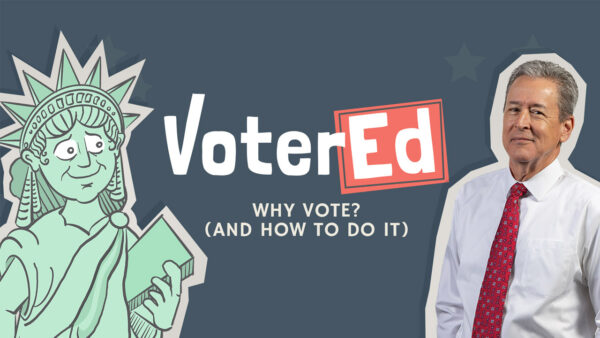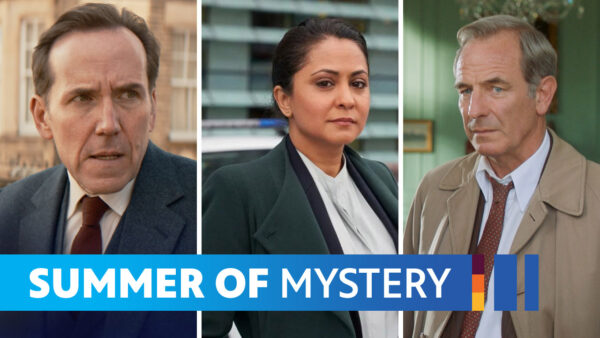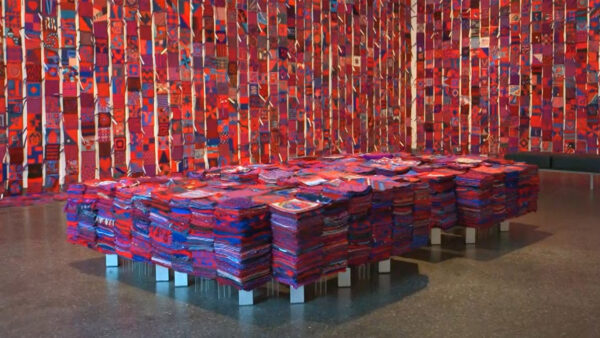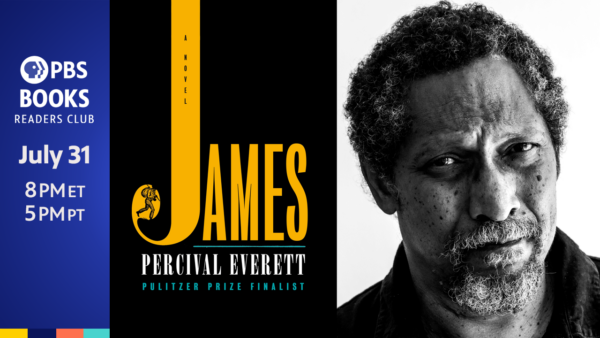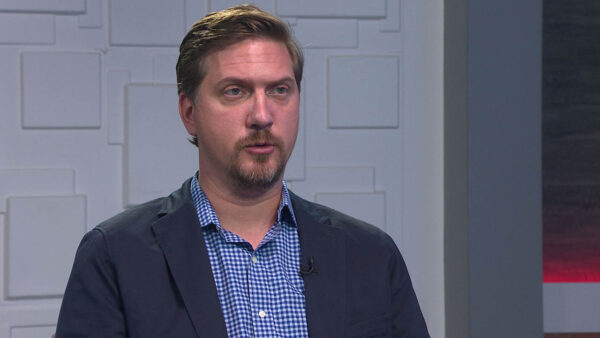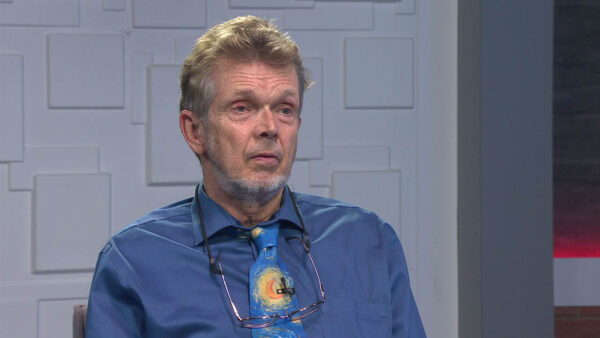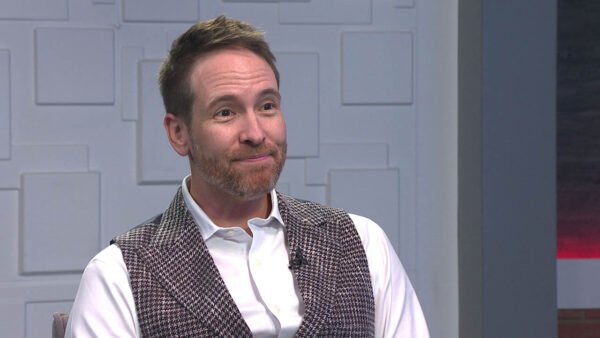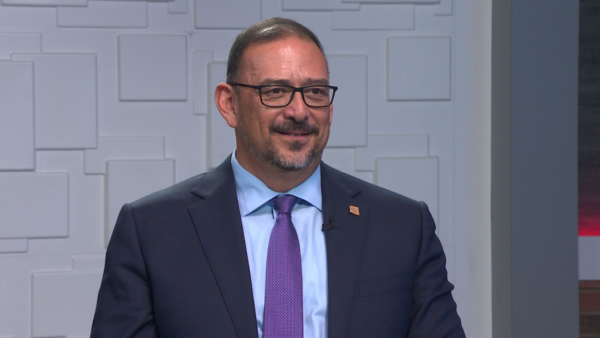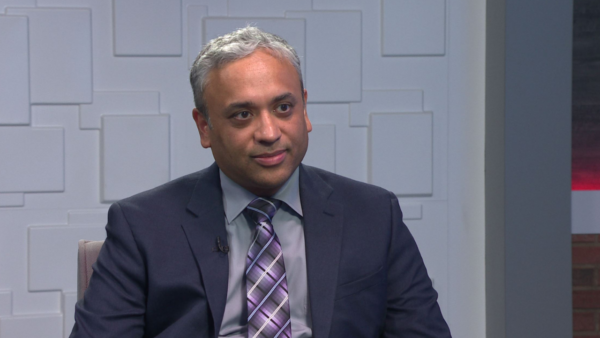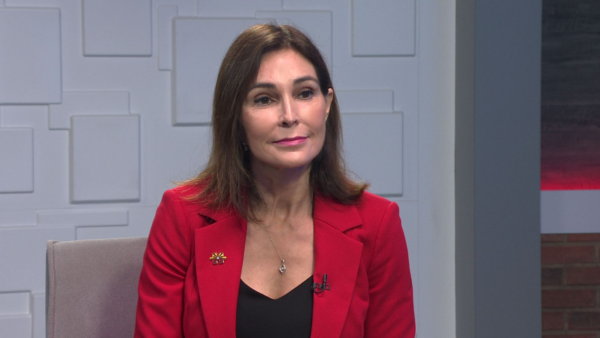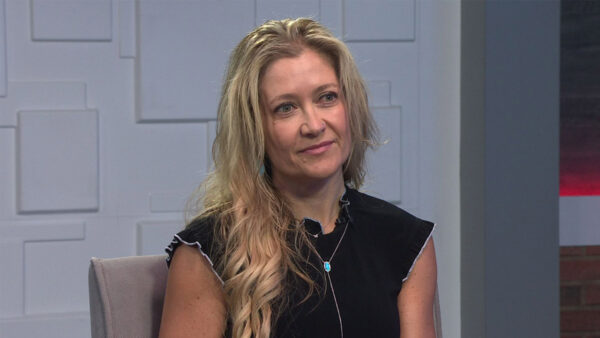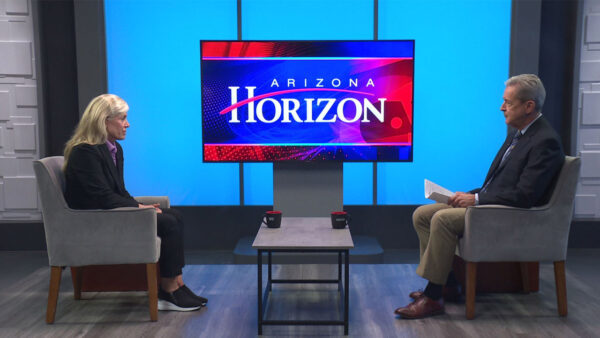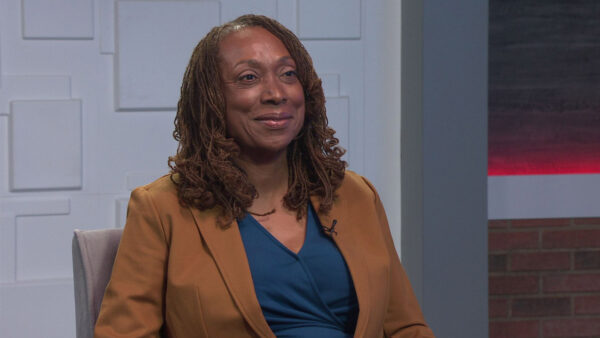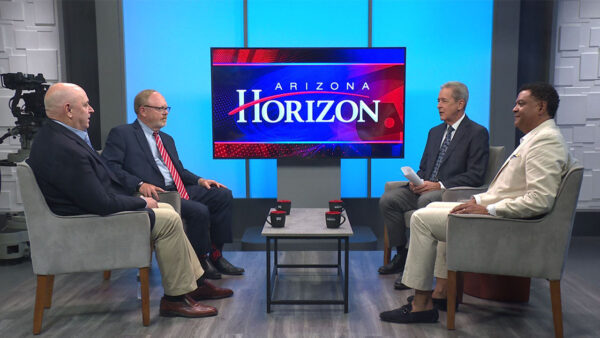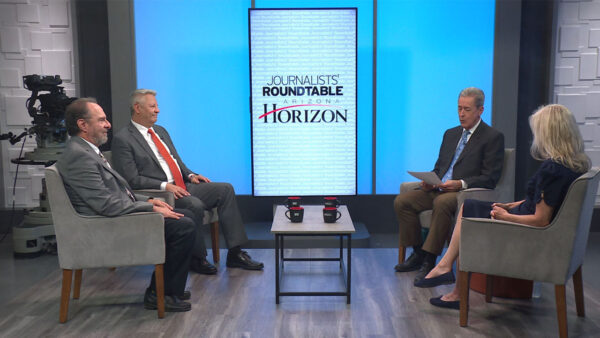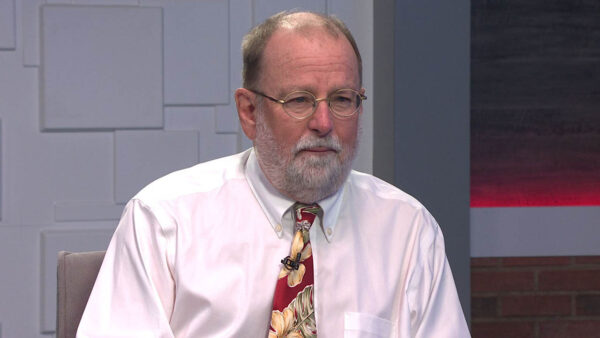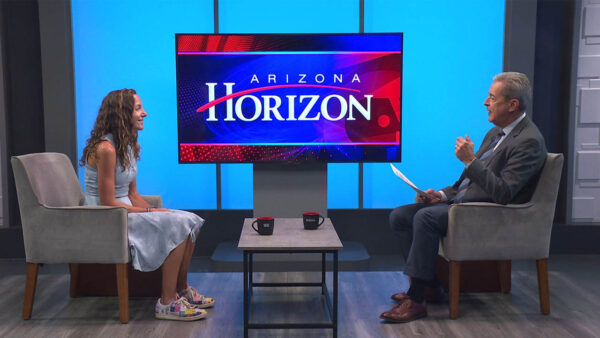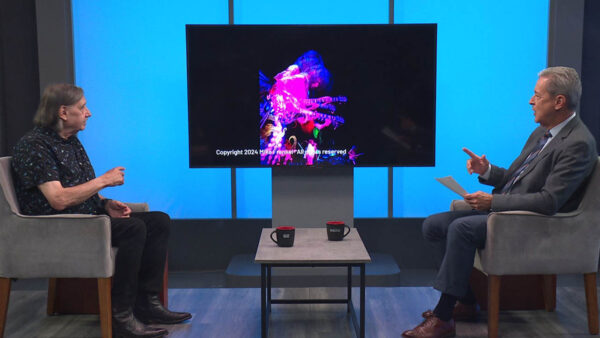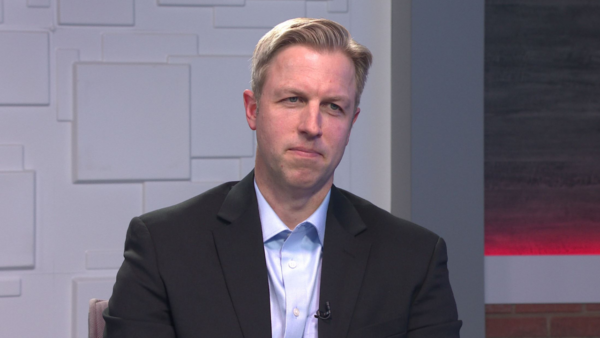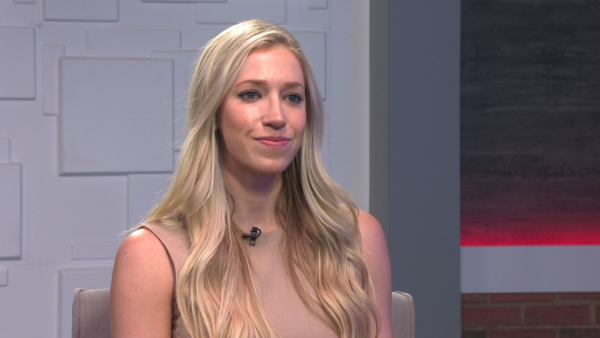If you’ve ever seen the movie, “The Day After Tomorrow,” you’ve seen an example of climate science fiction, or “Cli-Fi.” It’s a literary genre that allows us to peek into a future where our actions on the planet play out in full form. Manjana Milkoreit, a postdoctoral research fellow with Arizona State University’s Walton Sustainability Fellowship Program, and Clark Miller, a senior sustainability scientist in the Julie Ann Wrigley Global Institute of Sustainability, will discuss Cli-Fi and how it impacts our current world.
Ted Simons: Climate fiction, or "cli-fi," is a growing literary genre that imagines how climate change and other environmental concerns will shape human narratives of the future. Here with more on climate fiction is Manjana Milkoreit, a postdoctoral research fellow with ASU's Walton Sustainability Fellowship Program, and Clark Miller, a senior sustainability scientist in the Julie Ann Wrigley Global Institute of Sustainability. Good to have you both here. Thanks for joining us.
Manjana Milkoreit: Thanks for having us.
Ted Simons: Give me a better definition of climate fiction.
Manjana Milkoreit: Climate fiction is a currently exploding genre of literature that deals with climate change and the impacts of climate change.
Ted Simons: Give me an example of a story.
Manjana Milkoreit: There are lots of good examples because a diversity of stories is really broad. I think the majority of them deals -- stories in the future that are changed but it's stories about humans who are basically living out their struggles and conflicts in a changed future. But many of them also are about let's say extreme weather events, floods and storms that are already associated with climate change and dealing with that kind of dystopian or horror scenario but also stories about the present where people have to struggle with the issues of is climate change actually real. A story of a community in Tennessee or The State of Fear is asking the question if climate change is real at all.
Ted Simons: Compare now, climate fiction with post-apocalyptic fiction, dystopian fiction, are they the same?
Clark Miller: I think this is a great question because the reason we're seeing this is because society is confronting a significant challenge, like atomic bomb was a significant challenge in the postwar era so we are seeing precisely the same response in the literary community, grappling with this phenomenon, what does it mean, what kinds of futures might we inhabit? And so there are a lot of similarities in some of the literature, as well, although science fiction itself has evolved as a genre, too. So you get others like Past Watch, which is more about redemption and finding ways to address these big issues rather than simply being post-apocalyptic.
Ted Simons: It doesn't have to be cynical, does it? Or does that help with the narrative?
Clark Miller: It doesn't have to be cynical. It helps if it's plausible. [ Laughter ] Although I think to me the major issue is the desire to explore these big questions that we're confronting about what kind of society will we live in? One of the best examples is The Windup Girl, which is really about how are we going to live? How are we going to get energy in a world where we can't use fossil fuels? So there's a lot of animals coming back, there's a lot of turning of agricultural crops into energy and it's a very interesting exploration of this future that's not really dystopian.
Ted Simons: Can these types of stories foster some sort of public change, social change?
Manjana Milkoreit: That's a really interesting question. I think that's the key question that we are interested in, in the work that we're doing. I think it's a bit of an overblown argument to suggest that climate fiction might change societies but as Clark already mentioned, it's potentially a really great tool to explore possible futures, in a way that is very different than reading a climate science report. Through the characters and the stories, you enter into a kind of future that might be possible and the diversity of stories gives you a broad range of possible futures or narratives and helps people think through what it might feel like, what it might be like to be in a world that's climatically changes but also has technological and social changes that come with a changed climate. I think it helps people put themselves into the future as a kind of cognitive emotional time machine, if you will, a simulator of what the world might look like.
Ted Simons: How do you get past the escapism tendencies of science fiction in general? It's one thing to say this is dealing with something that's on the ground and could become worse in time?
Clark Miller: And we see a whole spectrum of writing. So there's no question that there are authors who are taking this and sensationalizing it, trying to figure out how am I going to have the next number one best-seller novel that everybody wants to read? All the way through to the other end of the spectrum where you have novelists who are really trying to -- trying to -- engage some of the deep themes of human-environment interaction, human nature, relationships, in ways that are, you know, reminiscent of long histories of human literature going back to the story of Noah in the Bible right and coming back, the significance of that coming back in the recent film and so forth.
Ted Simons: Who is the typical cli-fi reader?
Manjana Milkoreit: I would say anybody. In Arizona, it would be interesting to wait for the book called The Water Knife about a future water war between Phoenix and Las Vegas. Water is a big topic. So readers here might want to pick that up but readers might want to pick up other books like the odds Against Tomorrow which is about floods. Different effects of climate change, they can look for what's apt for them.
Ted Simons: Are you seeing most of the readers young, young adults, old, science fiction aficionados?
Manjana Milkoreit: There is a big subgenre for young adults but I wouldn't say there's an age restriction.
Ted Simons: No age restriction but what are the tendencies? What are you seeing out there?
Clark Miller: We really see -- I mean, I think Manjana's right, we see a great diversity because what we're seeing is writers from these different generations who are really targeting different generations all writing about this. So you get someone like Galupi, who is one of the rising young stars in the field and has attracted - many of his books are specifically for young adults, but then you have writers like Kim Stanley Robinson who's been around for decades and is himself a baby boomer and his audience is mostly baby boomers and he's written about this, as well. So, you know, I think you're seeing -- what we take it as more than anything is a signal that climate change has left the realm of the scientists and is now something that everyday people are beginning to engage with and ask, you know, what is this future we've committed ourselves to, where are we taking our society? What might we want to do about it? And climate fiction is not going to answer those questions but it is, you know, the willingness of people to pick up a book and read about it is a signal that they're taking it seriously.
Ted Simons: And the imagination of climate and futures initiative, what is that?
Manjana Milkoreit: We've created that about a year ago to deal with the big question of what is the role of imagination and society's responses to climate change or what is the role of the absence of imagination? And climate fiction is I think a wonderful tool to explore the imagination, to build our imagination, to strengthen it, in order to allow us to discuss those big questions and grapple with the challenges of climate change using as a fun tool, that is not as serious and dreadful as reading an I.P.C.C. report. So that offers a great opportunity to start those conversations and involves much broader group of stakeholders and interested people in that.
Ted Simons: Very good. Water Knife, that's what I've got to watch out for? Very interesting stuff. Thanks for joining us.
Video: We want to hear from you. Submit your questions, comments and concerns via e-mail at [email protected].
Manjana Milkoreit:Postdoctoral Research Fellow, Walton Sustainability Fellowship Program at Arizona State University; Clark Miller:Senior Sustainability Scientist, Julie Ann Wrigley Global Institute of Sustainability at Arizona State University;
